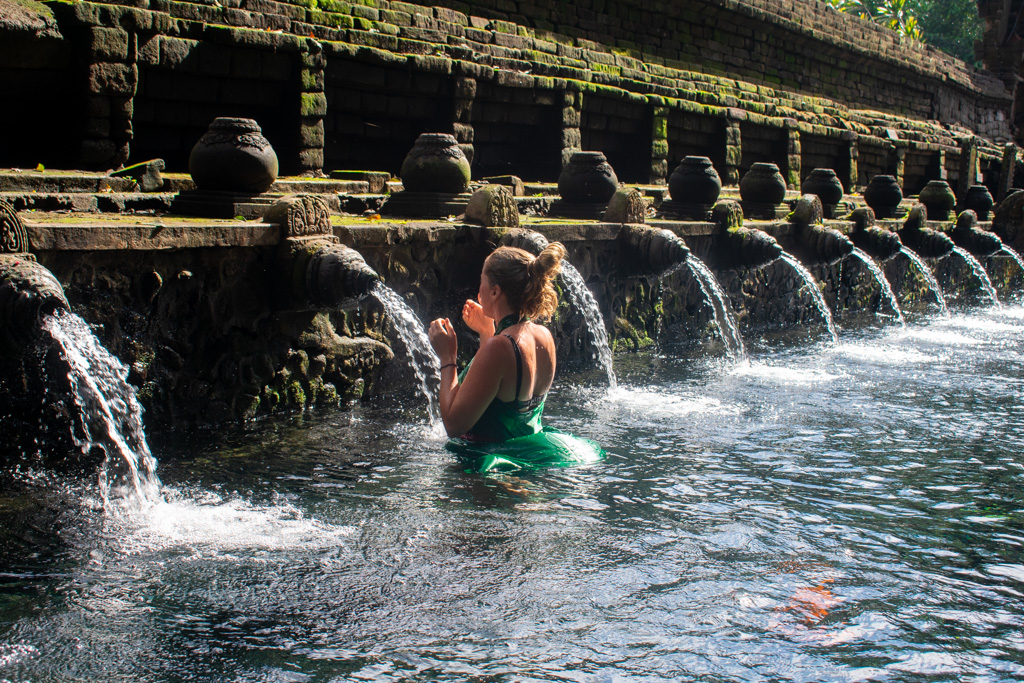Bali Belly: Identifying, Treating, And Preventing Traveler's Diarrhea

Table of Contents
Identifying Bali Belly: Recognizing the Symptoms
Bali Belly, or traveler's diarrhea, is characterized by a range of unpleasant symptoms. Knowing what to look for is the first step in effective management.
Common Symptoms of Traveler's Diarrhea:
- Watery stools: This is the hallmark symptom of Bali Belly, often occurring multiple times a day.
- Abdominal cramps and pain: Severe stomach aches are common, often accompanied by bloating and discomfort.
- Nausea and vomiting: These symptoms can accompany diarrhea, further contributing to dehydration.
- Fever: A high fever can indicate a more serious infection, requiring immediate medical attention.
- Bloating: Excess gas and abdominal swelling are frequently reported.
- Urgency to defecate: The feeling of needing to use the toilet frequently is another telltale sign.
Differentiating Bali Belly from Other Illnesses:
While many cases of diarrhea in Bali are simply traveler's diarrhea, it's crucial to differentiate it from other potential illnesses. Food poisoning, for example, might have a more rapid onset and be accompanied by specific foods consumed. Other infections could present with additional symptoms like a rash or respiratory issues.
When to Seek Medical Attention: Don't hesitate to seek professional medical help if your symptoms are severe. This includes:
- Severe dehydration: Signs include dizziness, dry mouth, decreased urination, and rapid heartbeat.
- Bloody stools: This indicates a more serious infection and requires immediate medical attention.
- High fever (above 102°F or 39°C): A persistent high fever warrants immediate medical evaluation.
- Symptoms lasting longer than a week: Prolonged diarrhea can lead to complications.
It's important to note the onset of symptoms, the frequency of bowel movements, and the consistency of your stools to help medical professionals make an accurate diagnosis.
Treating Bali Belly: Effective Home Remedies and Medical Interventions
Treatment for Bali Belly focuses on rehydration and symptom relief. However, remember that self-treating should only be a temporary measure.
Oral Rehydration Solutions (ORS):
Rehydration is paramount. Oral rehydration solutions (ORS) replenish lost fluids and electrolytes. Commercially available ORS packets are readily available in pharmacies worldwide. You can also make a homemade solution by mixing clean water with a pinch of salt and sugar. Follow instructions carefully.
Over-the-Counter Medications:
Over-the-counter medications can provide symptomatic relief. However, always consult a doctor before taking any medication, especially if you are pregnant or breastfeeding.
- Loperamide (Imodium): This medication slows down bowel movements, offering relief from frequent diarrhea. However, it should not be used if you have a fever or bloody stools.
- Bismuth subsalicylate (Pepto-Bismol): This medication can help reduce diarrhea and nausea.
When to Seek Medical Attention:
As previously mentioned, seek immediate medical attention if you experience:
- Severe dehydration
- Bloody diarrhea
- High fever
- Persistent symptoms (longer than a week)
Always consult a doctor or pharmacist before taking any medication, and be aware of potential side effects.
Preventing Bali Belly: Proactive Measures for a Healthy Trip
Prevention is key to enjoying your Bali trip without the interruption of Bali Belly. Implementing these preventative measures can significantly reduce your risk.
Food Safety Precautions:
- Avoid raw or undercooked food and drinks: Stick to well-cooked foods that are steaming hot.
- Peel fruits and vegetables yourself: This ensures they haven't been contaminated with unclean water or hands.
- Avoid ice unless you know it's made with purified water: Ice cubes can be a source of contamination.
- Drink bottled water or use water purification tablets: Avoid tap water completely.
- Choose reputable restaurants: Opt for establishments with high hygiene standards and a good reputation.
Water Safety:
Only drink bottled water or water that has been purified using reliable methods like water purification tablets or a filter.
Hygiene Practices:
- Wash your hands frequently: Use soap and water, especially before eating and after using the toilet.
- Use hand sanitizer: When soap and water aren't available, use an alcohol-based hand sanitizer.
Vaccination and Probiotics:
Certain vaccines and probiotics may help prevent traveler's diarrhea. Consult your doctor well in advance of your trip to discuss the appropriate preventative measures for you.
Create a checklist of these preventative measures and keep it handy throughout your trip.
Conclusion:
Bali Belly, while a common occurrence for travelers, doesn't have to ruin your Bali holiday. By understanding the symptoms, implementing appropriate treatment strategies, and taking proactive preventative measures, you can significantly reduce your risk of experiencing traveler's diarrhea (diarrhea in Bali, stomach problems in Bali). Remember to prioritize food and water safety, practice excellent hygiene, and consult your doctor before your trip regarding vaccinations and any necessary medications. Enjoy your trip to Bali, and remember to stay informed about preventing and treating Bali Belly for a healthy and unforgettable experience. Plan ahead and protect yourself – don't let Bali Belly spoil your adventure!

Featured Posts
-
 Nba 2 K25 Final Update Player Ratings Surge Before Playoffs
May 28, 2025
Nba 2 K25 Final Update Player Ratings Surge Before Playoffs
May 28, 2025 -
 Pacers Mathurin Ejected Altercation With Cavaliers Hunter In Game 4
May 28, 2025
Pacers Mathurin Ejected Altercation With Cavaliers Hunter In Game 4
May 28, 2025 -
 Hugh Jackmans Personal Life Age Difference And Career Considerations
May 28, 2025
Hugh Jackmans Personal Life Age Difference And Career Considerations
May 28, 2025 -
 Mlb Betting Brewers Vs Diamondbacks Predictions And Best Odds
May 28, 2025
Mlb Betting Brewers Vs Diamondbacks Predictions And Best Odds
May 28, 2025 -
 Etfs The Safe Haven For Investors Amidst Market Instability
May 28, 2025
Etfs The Safe Haven For Investors Amidst Market Instability
May 28, 2025
